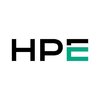TAC Engineer
10+ TAC Engineer Interview Questions and Answers

Asked in Cisco

Q. What are the new flags introduced by RSTP BPDUs?
RSTP BPDU introduces two new flags: TCN and Proposal.
TCN (Topology Change Notification) flag is used to indicate a topology change in the network.
Proposal flag is used to speed up the convergence process by allowing a switch to immediately transition to the forwarding state.
TCN flag is set by the root bridge and propagated to all switches in the network.
Proposal flag is set by a switch and sent to the root bridge.
Both flags are included in the BPDU message.
TCN flag triggers a...read more

Asked in Cisco

Q. A user is unable to SSH to the server. How do you troubleshoot this?
To troubleshoot SSH issue, check network connectivity, firewall settings, SSH configuration, and user permissions.
Check if the server is reachable over the network
Verify if the SSH service is running on the server
Check if the firewall is blocking SSH traffic
Verify SSH configuration on the server
Check if the user has the necessary permissions to access the server
Check SSH logs for any errors or warnings
TAC Engineer Interview Questions and Answers for Freshers

Asked in Cisco

Q. What happens when you type google.com into your web browser?
When you type google.com on your web browser, it sends a request to Google's server and loads the website.
The browser sends a DNS request to resolve the domain name 'google.com' to an IP address
The browser establishes a TCP connection with Google's server
The browser sends an HTTP request to the server for the homepage of google.com
The server responds with the HTML code for the homepage
The browser renders the HTML code and displays the webpage

Asked in Cisco

Q. How do you motivate a customer if a case is on the verge of escalation?
Motivating a customer on escalation edge
Show empathy and understanding of their frustration
Provide regular updates on the progress of the case
Offer solutions or workarounds to mitigate the issue
Highlight the importance of resolving the issue for their business
Escalate the case to higher management if necessary
Thank them for their patience and cooperation

Asked in Cisco

Q. Why ARP is used? Different types of ARP
ARP is used to map a network address (such as an IP address) to a physical address (such as a MAC address).
ARP stands for Address Resolution Protocol
It is used to resolve IP addresses to MAC addresses
There are two types of ARP: ARP Request and ARP Reply
ARP Request is used to find the MAC address of a device with a known IP address
ARP Reply is used to respond to an ARP Request with the MAC address of the device
ARP is important for communication between devices on a network

Asked in Movate

Q. Tcp 3 way handshake SSL handshake.
TCP 3-way handshake is a process of establishing a connection between two devices. SSL handshake is a process of establishing a secure connection between a client and a server.
TCP 3-way handshake involves SYN, SYN-ACK, and ACK packets exchanged between the client and server to establish a connection.
SSL handshake involves exchanging certificates, negotiating encryption algorithms, and generating session keys.
TCP 3-way handshake is used in TCP/IP protocol, while SSL handshake ...read more
TAC Engineer Jobs




Asked in Cisco

Q. ++Spanning tree and Troubleshooting of switching network
Explanation of Spanning Tree Protocol and troubleshooting techniques for switching networks.
Spanning Tree Protocol (STP) is used to prevent loops in a network by blocking redundant paths.
Troubleshooting STP involves checking for blocked ports, incorrect root bridge selection, and misconfigured priority values.
Other common issues in switching networks include VLAN mismatches, port security violations, and broadcast storms.
Tools such as packet captures, show commands, and netwo...read more

Asked in Ribbon Communication

Q. What are the detailed differences between a hub and a switch, including the underlying logic?
Hub operates at physical layer, broadcasts data to all ports. Switch operates at data link layer, forwards data to specific ports.
Hub operates at physical layer, broadcasts data to all ports
Switch operates at data link layer, forwards data to specific ports
Hub is less secure as it broadcasts data to all ports
Switch is more secure as it forwards data only to specific ports based on MAC addresses
Share interview questions and help millions of jobseekers 🌟


Asked in Movate

Q. what is VPN and what is DMVPN?
VPN is a secure way to connect to a private network over the internet. DMVPN is a type of VPN that dynamically creates tunnels between sites.
VPN stands for Virtual Private Network, which allows users to securely connect to a private network over the internet.
DMVPN stands for Dynamic Multipoint Virtual Private Network, which is a type of VPN that dynamically creates tunnels between sites without the need for preconfigured IPsec tunnels.
VPN encrypts data to ensure secure commun...read more

Asked in Concentrix Corporation

Q. Explain the DORA process.
DORA process is a four-step process used by DHCP to assign IP addresses to devices on a network.
DORA stands for Discover, Offer, Request, and Acknowledge.
Discover: The device sends a broadcast message to find available DHCP servers.
Offer: The DHCP server responds with an IP address offer.
Request: The device requests the offered IP address.
Acknowledge: The DHCP server acknowledges the request and assigns the IP address to the device.
DORA process ensures efficient IP address as...read more

Asked in Movate

Q. Introduction biggest achievement cahhlenges faced
My biggest achievement was successfully leading a team to implement a new network infrastructure, overcoming technical challenges along the way.
Led a team to implement a new network infrastructure
Overcame technical challenges during the project
Achieved successful implementation within the set timeline and budget

Asked in Klm Axiva Finvest

Q. How do you handle customers?
I handle customers with patience, empathy, and effective communication.
Listen actively to their concerns and needs
Acknowledge their frustrations and apologize for any inconvenience
Provide clear and concise solutions to their problems
Follow up with them to ensure their issue has been resolved
Maintain a positive and professional attitude throughout the interaction

Asked in Infosys

Q. develop software corporate business
Developing software for corporate businesses involves creating customized solutions to meet their specific needs.
Identify the business requirements and goals
Design and develop software solutions
Test and deploy the software
Provide ongoing support and maintenance
Ensure data security and privacy
Examples: CRM software, inventory management systems, HR management software

Asked in Movate

Q. Packet tracer real life scenario
Packet tracer real life scenario involves simulating network configurations and troubleshooting issues in a virtual environment.
Create a network topology with routers, switches, and end devices
Configure IP addresses, VLANs, routing protocols, and access control lists
Simulate network traffic and troubleshoot connectivity issues
Use tools like ping, traceroute, and Wireshark to analyze network traffic

Asked in Movate

Q. How does ARP work?
ARP (Address Resolution Protocol) is used to map IP addresses to MAC addresses on a local network.
ARP is used to find the MAC address of a device based on its IP address.
ARP requests are broadcasted on the local network to all devices.
Once the device with the corresponding IP address responds, its MAC address is stored in the ARP table.
ARP cache poisoning is a common attack where a malicious device sends false ARP messages to redirect traffic.

Asked in Hewlett Packard Enterprise

Q. Osi model and description
The OSI model is a conceptual framework that standardizes the functions of a telecommunication or computing system into seven different layers.
The OSI model stands for Open Systems Interconnection model.
It helps in understanding how different networking protocols work together.
Each layer has a specific function and communicates with the layers above and below it.
Examples of layers include physical layer, data link layer, network layer, transport layer, session layer, presenta...read more

Asked in Movate

Q. What is the output of the 'switch vlan brief' command and what information does it provide?
Switch vlan brief command displays a summary of VLAN information on a switch.
Used to quickly view VLAN configuration on a switch
Shows VLAN ID, name, status, and ports assigned to each VLAN
Helps troubleshoot VLAN-related issues
Example: 'switch vlan brief' command on Cisco switches

Asked in Checkpoint Systems

Q. Explain the DNS flow.
DNS flow refers to the process of how a DNS query is resolved from start to finish.
Client sends a DNS query to the recursive resolver.
Recursive resolver checks its cache for the answer, if not found, it sends the query to authoritative nameservers.
Authoritative nameservers respond with the IP address of the requested domain.
Recursive resolver caches the response and sends it back to the client.
Client now has the IP address and can connect to the requested domain.

Asked in Checkpoint Systems

Q. Explain TCP flow.
TCP flow refers to the sequence of packets exchanged between two devices over a TCP connection.
TCP flow involves the establishment, data transfer, and termination of a TCP connection.
It includes the exchange of TCP segments containing data, acknowledgment, and control information.
TCP flow control mechanisms like sliding window and congestion control help regulate the flow of data.
TCP flow can be analyzed using tools like Wireshark to troubleshoot network issues.
Interview Questions of Similar Designations
Interview Experiences of Popular Companies








Reviews
Interviews
Salaries
Users

















